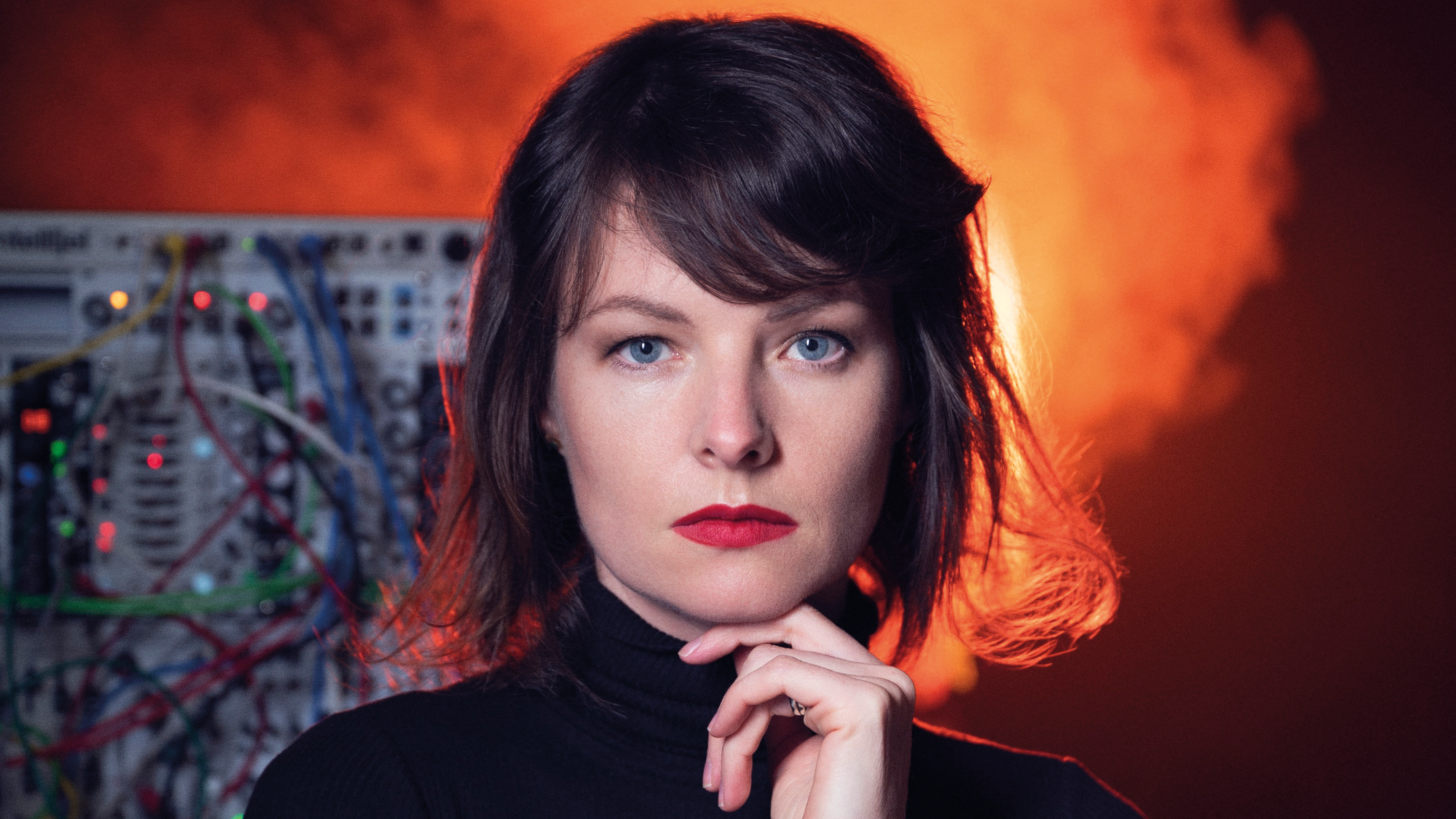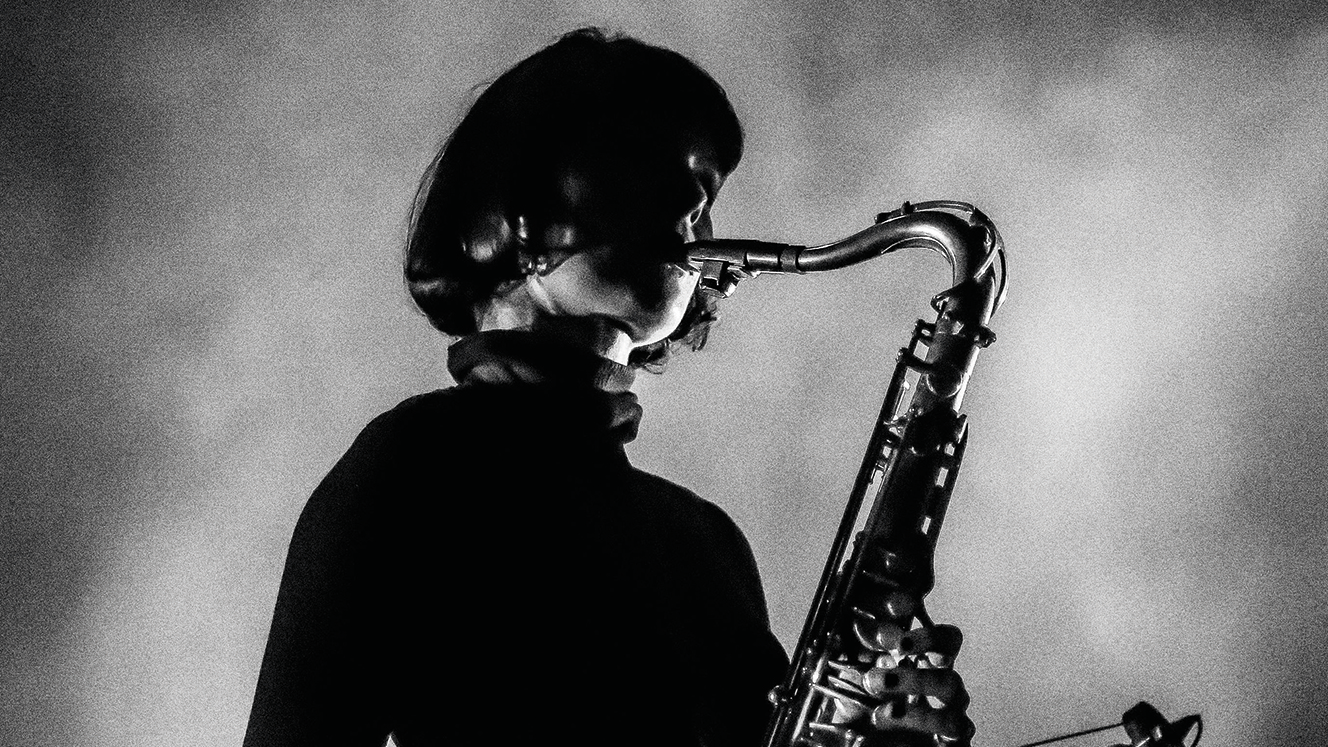15 questions for... Jorja Chalmers: "Bryan Ferry does kindly let me use his amazing vintage synthesiser collection"
Now an accomplished solo artist, Chalmers has worked as a touring musician with Take That, Bryan Ferry and The Ting Tings

From learning piano at age five to teaching music in her teens, Jorja Chalmers was almost destined to be involved in music in some way. Yet even she couldn’t have predicted what followed, and now she has become an in-demand touring musician with the likes of Bryan Ferry and Take That, and a solo artist producing exceptional and mesmerising works.
Looking at Jorja Chalmers’ life thus far, you could easily conclude: ‘you certainly make your own luck’. That’s because Jorja worked hard building the foundations of a successful music career early on. At just five she started learning piano; little more than a decade later she was teaching music, and not a lot longer after that she was studying at Sydney’s Conservatorium of Music.
Yet ironically, only once she turned her back on studying and shipped over to the UK, did her break come, and she ended up touring with the likes of Take That, Ting Tings and Bryan Ferry as both keyboard player and saxophonist. Wikipedia describes her as (we’re not proud but we do like this quote) someone who “steals the show, blasting out the sax lines with a refreshing brashness”.
Live credentials aside though, Jorja has just unleashed her latest album, Midnight Train. Mixed by Dean Hurley, David Lynch’s engineer, the album ‘cannibalises’ and then rebuilds influences including YMO, Michael Nyman and The Terminator, and has been described as a hypnotic work of Gothic grandeur. Questions, questions…
1. Tell us how you got into music production in the first place?
“I grew up in Sydney in a musical home. My mum played the guitar and sang, and my dad built himself these incredibly powerful speakers and used to play everything at top volume. I started mucking about on the piano when I was about five and eventually started to write my own songs. I learnt saxophone in high school and went on to study at Sydney Conservatorium of Music.”
2. When did you start to feel you were getting somewhere in music?
Want all the hottest music and gear news, reviews, deals, features and more, direct to your inbox? Sign up here.
“I was making a living from music at a young age because I started a tuition business in my teens whilst I was still in Australia. When I moved to London in 2004 I wanted a break from teaching so worked a few office jobs and started playing in bands.
"In 2007 Bryan Ferry’s PA at the time came to see me play in a new wave band called, Hotel Motel. I went for an audition and got the job doing corporate gigs for a few years."
I used to write music on his Atari ST which was a lot of fun – I wish DAWs today looked the same!
"In 2011 I then got the call to tour with Roxy Music alongside Andy Mackay and make the leap to being a full-time session musician. I’ve been working for him ever since. I still teach piano and sax when I’m not on the road.”
3. What is your overall music and production philosophy?
“I tend to only want to do or make music that I’m into or that’s in line with my taste. I do think that writing constantly doesn’t always bear the most fruit. When I’m writing an album, I’ll collect ideas that are instinctively guiding me and I line my nest with those items.
"The writing windows I have are usually short moments of inspiration where I’ll knock out an album’s worth ideas in a few days then spend months crafting them.”
4. Tell us about your ‘computer music’ production history?
“My husband, Ali Renault, is a music producer and, when I first moved to London, I used to write music on his Atari ST which was a lot of fun – I wish DAWs today looked the same! I then went to Logic for a few years and eventually settled on Ableton which I’ve been using for about ten years.
"Writing music on the computer completely opened up what I could make on my own. I’d been writing piano-based music until then so it meant I could make it sound more like the music I was into.”
5. Tell us about the rest of the gear in your recording studio?
“So there’s a lot of saxophones, a Yamaha digital piano; I’ve got a gaming PC, MoTU interface. My DAW is Ableton and I primarily use the Arturia Analog Lab, Solina and Prophet.”

6. What are your favourite plugins?
“Valhalla Vintage Verb – I’m trying to create an analogue sound for everything I do so the Vintage reverb gives you so many great ‘old’ sounds to choose from for you to mould into the sound you want. The Homestar Blade Runner preset gives a gorgeous washed-out, ethereal sound. I use that a lot for vocals and sax.
“Valhalla Shimmer – Is another reverb that I’ll use more if there’s a cinematic, soundtrack or instrumental piece that I’m working on. It has an immersive effect that is great for big sounds.
“Waves J37 Tape Emulator – I use this all the time. I’m totally in love with that ‘sound of the 60s’ effect and it immediately gives my sound more character.
“Soundtoys Decapitator – Again I’m attracted to the Decapitator as it’s modelled on the Ampex 350 tape drive preamp which gives that old sound of the 50s Motown. It drives the sound to make it bigger.
“Soundtoys Little AlterBoy – This is great for those of us sometimes trying to change the sound of our voices. There’s so much scope to be playful and creative with the sound. I’ve just done a track with the robot feature.”
7. How do you tend to start a track?
“I’ll do a bassline first, then pads, then drums but it does vary every time. The first sitting is all about ideas, then I’ll switch to edit mode when I’ve got enough to work with.”
8. How do you know when a track’s done?
“I spent years writing unfinished songs and then something clicked and I suddenly had the inclination to finish each track I write. All those unfinished tracks represented a safe ground where I could craft and experiment with what I wanted my sound to be.
Bryan Ferry does kindly let me use his amazing vintage synthesiser collection in his London Studio.
"I’d try and fail a lot but eventually if you write a track that you think is good enough, you’ll finish it. It’s a process you can’t rush and it’s all about writing because you love it and it makes you feel good, right? So, if you want to write a series of jams you should go for it and not judge yourself.”
9. What music technology would you like to see developed?
“A virtual studio engineer? I have taught myself how to engineer to achieve a sound I’m happy with, but it’s a means to an end. Saying that, Ableton does make the process really simple and approachable.”
10. Were you involved in any collaborations with the new album?
“I usually write everything on my own but for this album I worked with my good friend Joe Ryan who plays drums. He’s a quiet genius.
"I gave him a brief to play like Bill Ward from Black Sabbath and he did a great job, understanding that I wanted the heavy drums to complement the sweet-sounding songs to make it feel more emotional and dark.”
11. What’s on your gear wish list?
“Hmm: Juno-106, Jupiter-8, Rhodes, VTS3, 808, Linn drum… I hope one day to own all these beauties. Until then, Bryan Ferry does kindly let me use his amazing vintage synthesiser collection in his London Studio.”
12. What advice have you got for playing out live (now that we can!)?
“It is all about practice. Every time you play a gig you learn how to make it better. It’s about thinking through the technical aspects but also not forgetting to connect with the audience. You want everything to be muscle memory so you can focus on the performance itself.”
13. What about studio advice?
“Ask questions, watch the tutorials. Be open to learning the how and why. I’m not naturally curious about the engineering side but you have to educate yourself if you want to grow as a producer. Send your tracks to friends who will be honest with you so you can get some loving feedback.”
14. And from working in the industry?
“Make as many friends as you can. It’s a small community and if you’re doing something great people will take notice.”
15. Plug time! Give us a gratuitous plug!
“My new album Midnight Train is out on 28 May via Italians Do It Better.”


Computer Music magazine is the world’s best selling publication dedicated solely to making great music with your Mac or PC computer. Each issue it brings its lucky readers the best in cutting-edge tutorials, need-to-know, expert software reviews and even all the tools you actually need to make great music today, courtesy of our legendary CM Plugin Suite.
